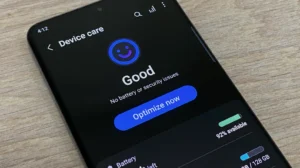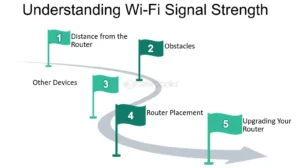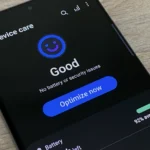Mental health is an important part of our overall well-being. Just like we visit a doctor for physical illnesses, seeing a psychiatrist can help when we face mental health challenges. Psychiatric treatments include medications, therapy, and other methods to support people in feeling better and living healthier lives.
This guide will explain the common types of psychiatric treatments, how they work, and what to expect when you seek help. Whether you are looking for a psychiatrist for depression or want to learn more about therapy options, this article will give you a clear and simple overview.
What is Psychiatry?
Psychiatry is a branch of medicine focused on diagnosing, treating, and preventing mental illnesses. Psychiatrists are medical doctors specialized in mental health who can prescribe medication and provide or recommend various treatments.
Psychiatry covers many conditions, such as:
- Depression
- Anxiety
- Bipolar disorder
- Schizophrenia
- Post-traumatic stress disorder (PTSD)
- Attention deficit hyperactivity disorder (ADHD)
A psychiatrist helps find the best treatment plan for each individual.
Role of a Psychiatrist
A psychiatrist is a medical doctor who specializes in mental health. They can diagnose mental illnesses, prescribe medications, and provide other types of treatment. If you’re looking for a psychiatrist for depression, they can help you create a treatment plan based on your symptoms and goals.
Psychiatrists often work with other professionals, like psychologists and social workers, to give you the best care.
Types of Psychiatric Treatments
Psychiatric treatment often involves a combination of approaches tailored to a person’s needs. Here are the main types of treatments you might encounter:
Medications
Medications are commonly used to manage symptoms of mental health disorders. They help balance chemicals in the brain that affect mood and behavior. Common Psychiatric Medications include;
Antidepressants
These help treat depression and some anxiety disorders. Examples include selective serotonin reuptake inhibitors (SSRIs) like fluoxetine (Prozac) and sertraline (Zoloft).
Anti-anxiety Medications
Such as benzodiazepines, help reduce severe anxiety symptoms but are usually prescribed for short-term use.
Mood Stabilizers
Used for bipolar disorder to control mood swings. Lithium is a well-known mood stabilizer.
Antipsychotics
Help manage symptoms of schizophrenia and other psychotic disorders. They can also be used for severe mood disorders.
How Medications Work
Medications work by changing the levels of brain chemicals called neurotransmitters. These chemicals help control emotions and thoughts. For example, antidepressants increase serotonin, a chemical that helps improve mood.
Medications can take weeks to show full effects. Doctors usually start with a low dose and adjust it slowly to find the right balance.
Like all medications, psychiatric drugs can cause side effects. These differ depending on the specific medicine but may include:
- Nausea
- Weight gain
- Drowsiness
- Dry mouth
- Dizziness
Your psychiatrist will monitor side effects and may change the medication if needed.
Therapy and Counseling
Therapy is a way to talk through problems and emotions with a trained professional. It can help you understand yourself, learn coping skills, and feel supported.
Psychotherapy (Talk Therapy)
Psychotherapy is a treatment that involves talking with a trained therapist to understand and manage emotional problems. It helps people learn new ways to cope with stress, change negative thinking, and improve relationships. Common types of Psychotherapy include;
Cognitive Behavioral Therapy (CBT)
CBT helps people identify negative thoughts and replace them with healthier ones. CBT is effective for depression, anxiety, PTSD, OCD, and more. Sessions are structured, goal-focused, and usually last a few months
Dialectical Behavior Therapy (DBT)
DBT is useful for people with intense emotions, self-harming behaviors, or borderline personality disorder. It teaches skills like mindfulness, emotional regulation, and problem-solving.
Psychodynamic Therapy
This therapy focuses on exploring past experiences, especially from childhood, to understand current behavior and feelings. It helps you uncover unconscious thoughts and unresolved conflicts.
Psychodynamic therapy is less structured and more open-ended than CBT. It’s good for people who want deep personal insight or have long-term emotional difficulties.
Interpersonal Therapy (IPT)
IPT focuses on improving relationships and communication. It works well for people with depression or social struggles. IPT is often used for depression and anxiety, especially when symptoms are tied to social or family issues.
Family and Couples Therapy
Sometimes mental health affects the whole family. These sessions help loved ones understand each other and support recovery. Therapy can be done one-on-one, with families, or in groups.
Psychotherapy teaches skills for managing emotions and stress. It can help uncover the root causes of mental health problems and provide tools for long-term recovery. Many people find therapy a safe space to express themselves and feel understood.
Combination Treatments
For many mental health conditions, a combination of medication and psychotherapy works best. Medication can help stabilize mood or reduce symptoms, while therapy helps address underlying issues and develop coping strategies.
Other Psychiatric Treatments
Besides medications and therapy, there are additional treatments that may be used in certain cases:
Electroconvulsive Therapy (ECT)
ECT is a medical treatment where small electric currents are passed through the brain to trigger a brief seizure. This treatment is used for severe depression or bipolar disorder when other treatments don’t work. ECT is done under anesthesia and is closely monitored.
Transcranial Magnetic Stimulation (TMS)
TMS uses magnetic fields to stimulate nerve cells in the brain. It is a non-invasive treatment often used for depression that hasn’t responded to medication.
Hospitalization
In some cases, people may need to stay in a hospital for a short time to receive intensive care. This can be necessary when there is a risk of harm or severe symptoms that require close monitoring.
When to See a Psychiatrist
Knowing when to seek professional help is important. You might consider seeing a psychiatrist if you experience:
- Persistent sadness or depression
- Severe anxiety or panic attacks
- Mood swings or irritability
- Difficulty sleeping or eating
- Thoughts of self-harm or suicide
- Problems functioning at work, school, or home
If you or someone you know struggles with these symptoms, a psychiatrist for depression or other mental health conditions can offer the support and treatment needed.
What to Expect at Your Psychiatric Appointment
Visiting a psychiatrist can feel overwhelming, but knowing what to expect can ease your worries.
Initial Evaluation
During the first visit, the psychiatrist will ask about your symptoms, medical history, family history, and lifestyle. They may also perform a physical exam or order tests to rule out other causes.
Diagnosis and Treatment Plan
Based on the evaluation, the psychiatrist will diagnose your condition and discuss treatment options. This plan may include medications, therapy, or other treatments.
Follow-Up Visits
Treatment often requires regular follow-ups to monitor progress and make adjustments. Your psychiatrist will check how well the treatments are working and any side effects.
How to Find the Right Psychiatric Treatment
Finding the right psychiatric treatment is a personal journey. It can take time and may involve trying a few different approaches. Here’s a step-by-step guide to help you get started:
Start with Your Primary Care Doctor
Your primary care doctor is a good first step.
Sometimes, mental health issues like depression or anxiety can be linked to other health problems, so it’s important to have a full check-up.
Understand the Types of Providers
There are several types of mental health professionals. Knowing the difference can help you find the right fit:
Psychiatrists
These are medical doctors who specialize in mental health. They can prescribe medications and may also provide therapy. If you need help with medication, a psychiatrist for depression might be the right choice.
Psychologists
Psychologists focus on therapy and psychological testing. They can help with issues like anxiety, trauma, and behavior problems. Most psychologists do not prescribe medications.
Therapists and Counselors
These professionals provide talk therapy and emotional support. They may have different training backgrounds (like social work or marriage and family therapy), but they are skilled in helping you work through your problems.
Nurse Practitioners and Physician Assistants
In some states, they can also prescribe medications and provide therapy, especially those trained in psychiatric care.
Choose the Right Fit
The right provider is someone you feel comfortable with. Consider:
- Specialties
- Approach
- Experience
Don’t be afraid to ask questions during your first visit. It’s okay to shop around until you find someone who feels right for you.
Be Open and Honest
To get the best care, be as honest as you can. Mental health professionals are trained to listen without judgment. Your honesty helps them understand you better and create a treatment plan that fits your needs.
Be Patient with the Process
Mental health treatment is not always quick. It may take time to:
- Find the right provider
- Try different medications or therapies
- See improvements in your mood or thinking
Some people start feeling better within a few weeks. For others, it may take longer. This is normal. The key is to stay committed and speak up if something isn’t working.
Don’t give up- healing takes time. With the right support, things can and do get better.
Your Path to Better Mental Health
Mental health challenges are common, and effective treatments exist to help you overcome them. Whether through medication, therapy, or newer treatments, working with a psychiatrist can guide you toward feeling better.
Don’t hesitate to reach out for support. If you or a loved one struggles with depression, anxiety, or other mental health issues, consulting a qualified mental health professional is an important step. Recovery is possible, and with the right treatment, you can live a fulfilling life.
Curious about what’s next? Explore our site for more!











